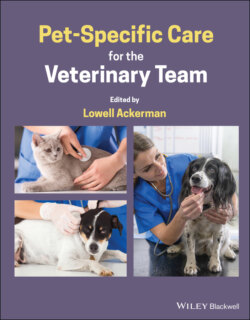Читать книгу Pet-Specific Care for the Veterinary Team - Группа авторов - Страница 291
MAIN CONCEPTS 3.7.3 The Need
ОглавлениеMany veterinary organizations consider health testing an essential component of veterinary medicine. Their policies on inherited disorders often include the goals of maximizing the health and welfare of companion animals and the education of breeders, owners, and the public on the responsibilities involved to minimize inherited disorders in the pet population. In order to achieve that goal, an understanding of the inheritance and genetics underlying disease is necessary (see 3.1 Genetic Basics and 3.2 Modes of Inheritance). Such understanding requires a foundation of knowledge on disease prevalence, mode of inheritance, and, ideally, determination of the DNA mutations that cause the disease (see 3.3 The Genetics of Disease). Aggregation of descriptive health data is necessary to characterize diseases of companion animals and thereby enable the research that will lead to that fundamental knowledge of what diseases are relevant to a given breed and, importantly, the development of tests needed to reduce the incidence of those diseases.
To that end, veterinarians should encourage the use of health screening in all their clients. For the clients, screening plays a role in managing the health of an individual pet and developing a holistic, long‐range health plan based upon knowledge of susceptibility to certain diseases. Adverse reactions can be avoided or preemptive care can be initiated if known disease risk is identified through screening. Additionally, screening is an important tool for the health of all companion animals in reducing the incidence of disease and discovery of trends of emerging diseases.
